About Me
Greetings! My name is Kaireisi Jacob L.Carasi from Grade-10-Benjamin in S.Y. 2025-2026. This is my ePortfolio for TLE:CCS Class; this contains: activities/performance tasks, group works/presentations, reflections, and other things done during this school year. Have fun exploring my site! Feel free to explore each quarter to see my progress and projects.
Quarter 1
Summary of the First Quarter:
- Written Task: My Best Judgement -8/8
- Written Task: Sean & Sally -9/15
- Group Work: Guess the Barrier -19/20
- Quiz #1 -23/25
- Written Task: Phoneme Checklst
- Asynchronous Task: Reading Phonemes
- Written Task: Celebrating Nutrition Month Invitation -9/15
- Quiz #2 (SVA) - 10/15
- Asynchronous Task: Pagpag Video -?/10
- Group Work: Tenses & Aspects -?/15
- Written Task: Mr. Morton -14/15
- Quiz #3 -16/20
- Performance Task: Interview Script Writing -15/15
- Group Work: Biography Speech -16/16
- Periodical Test -46/50
Performance Tasks
Performance Task 1: Interview Script Writing - 15/15
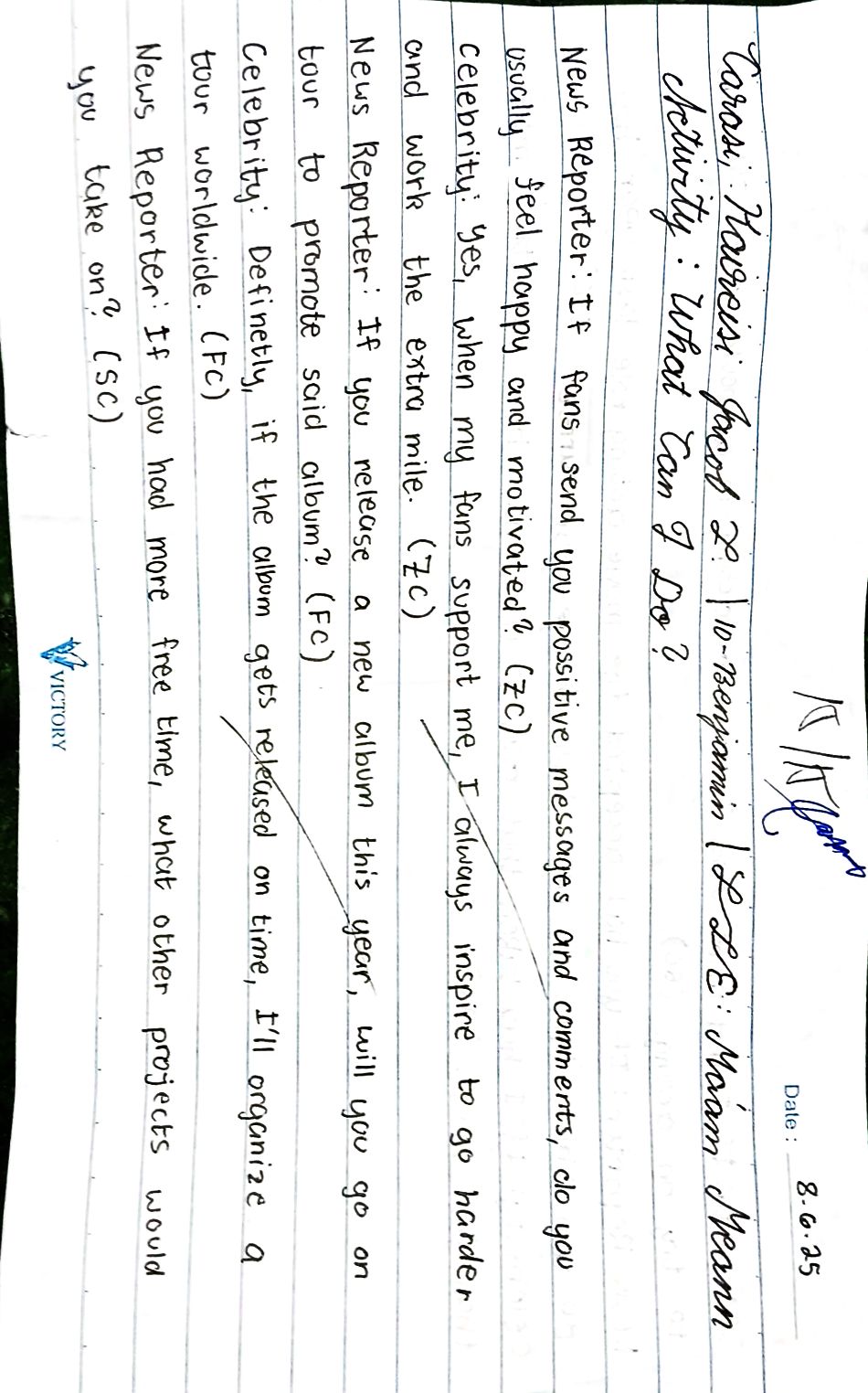
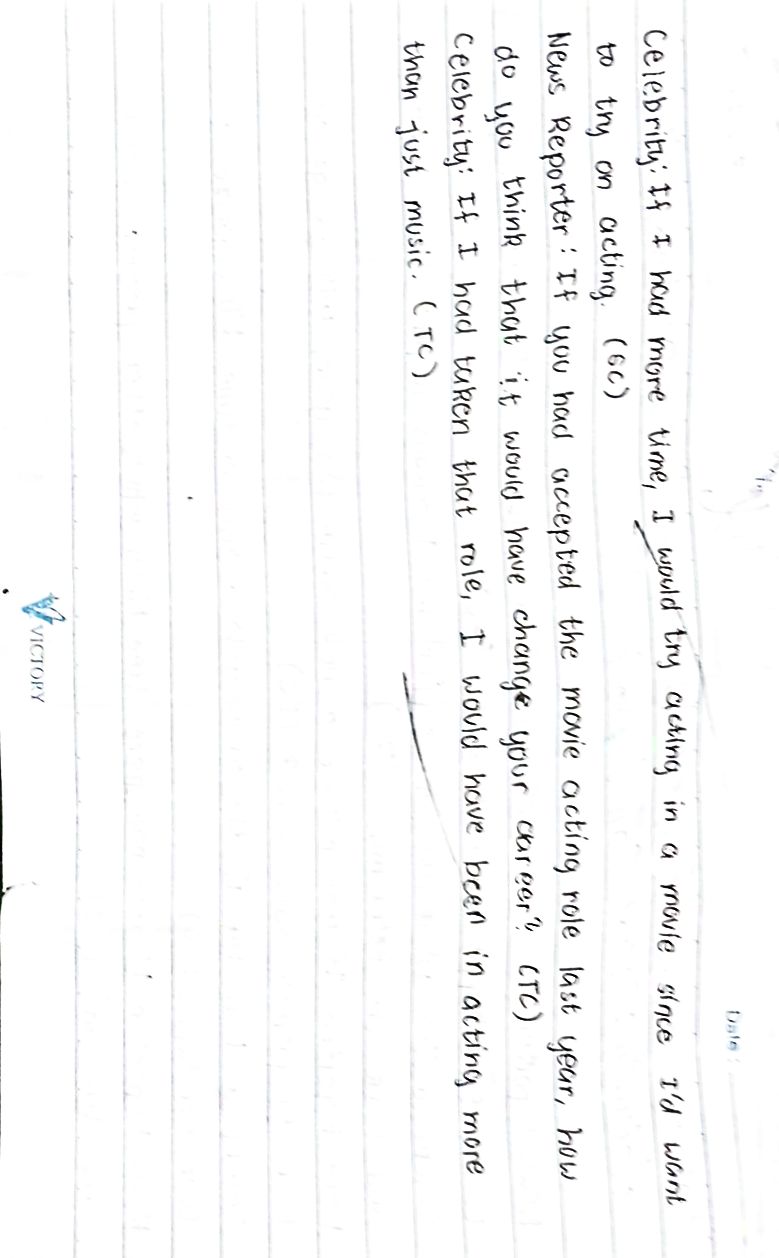
Written Tasks
Written Task 1: My Best Judgement - 8/8
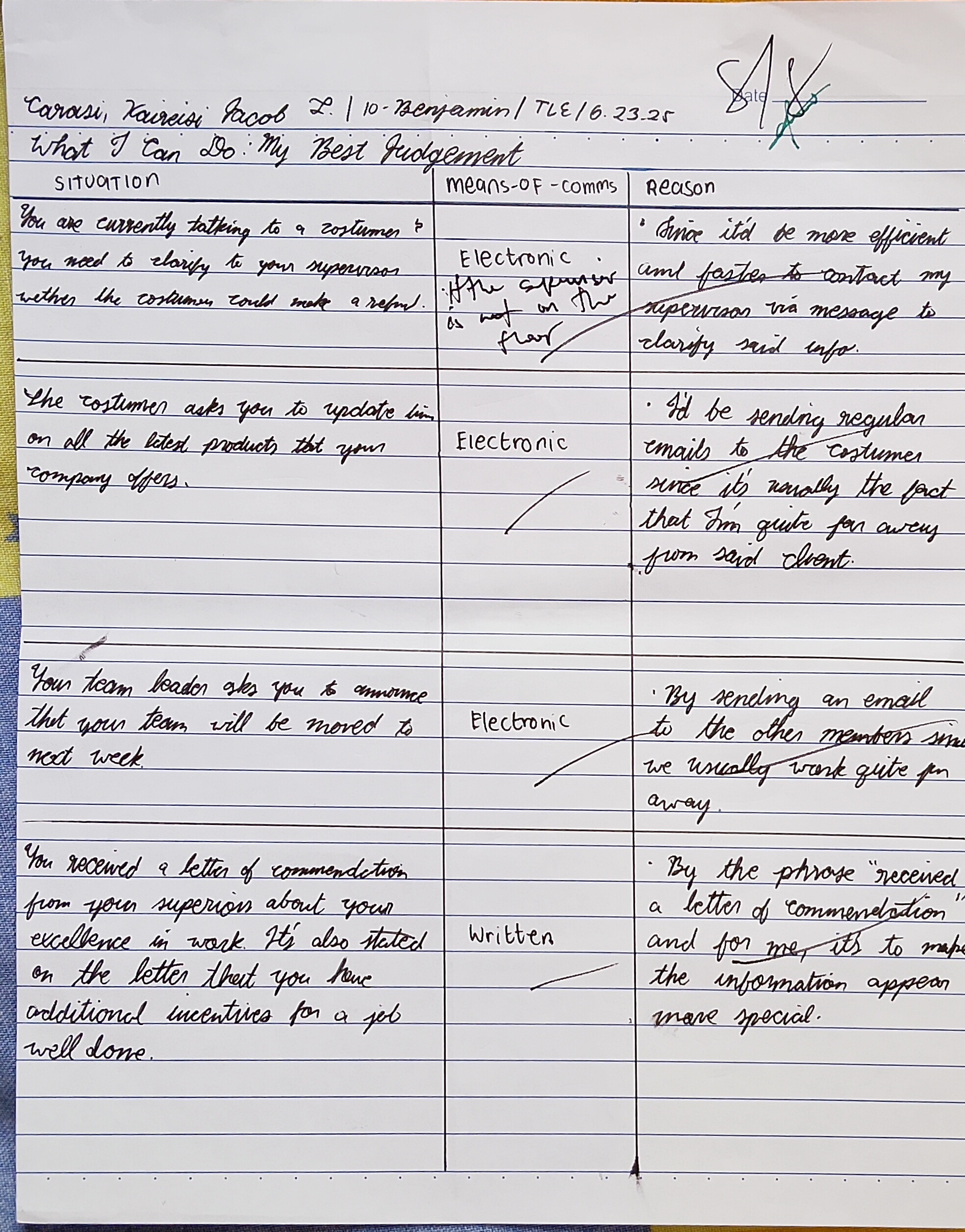
Written Task 2: Sean & Sally - 9/15
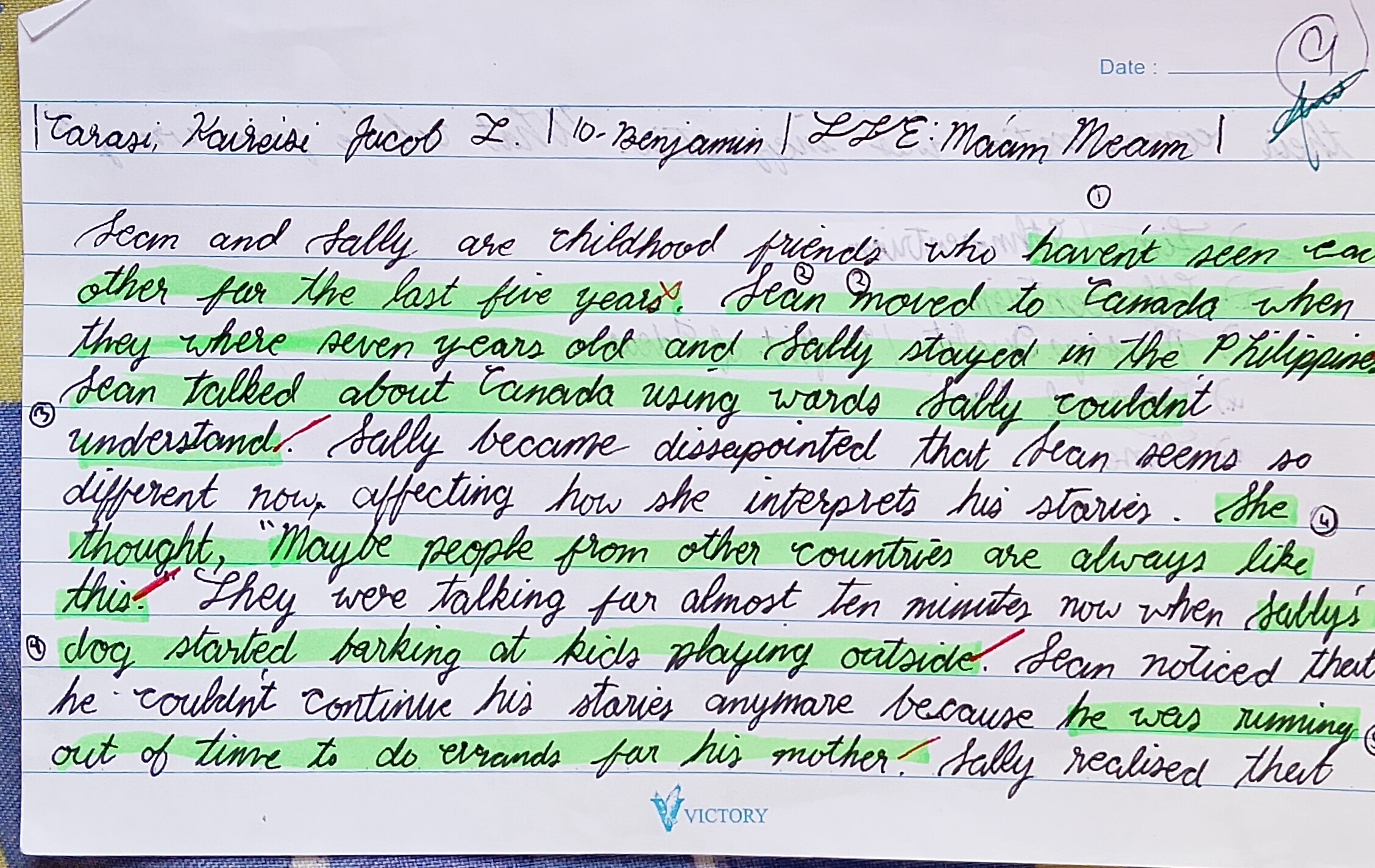
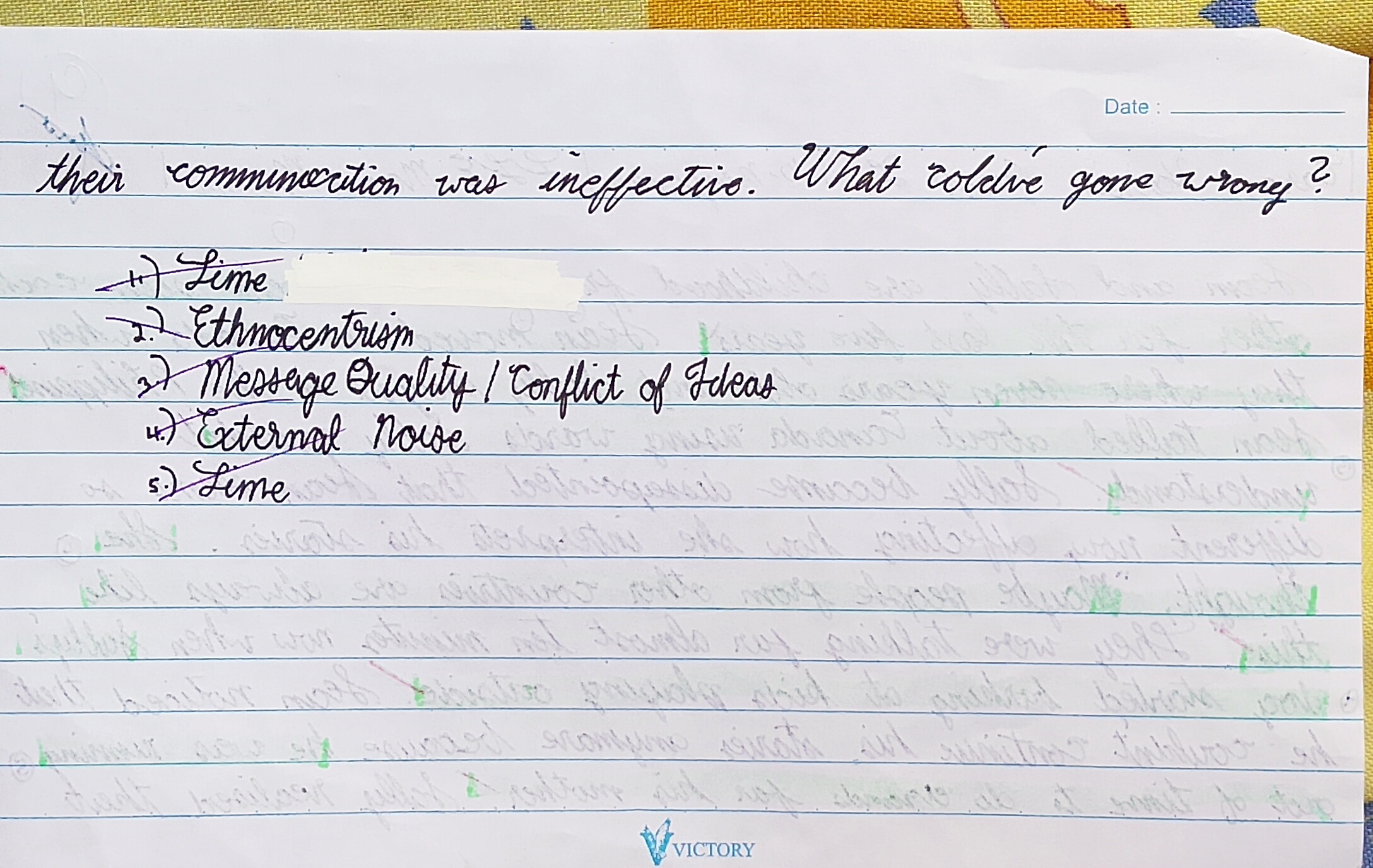
Written Task 3: Phoneme Checklist

Written Task 4: Mr. Morton - 14/15
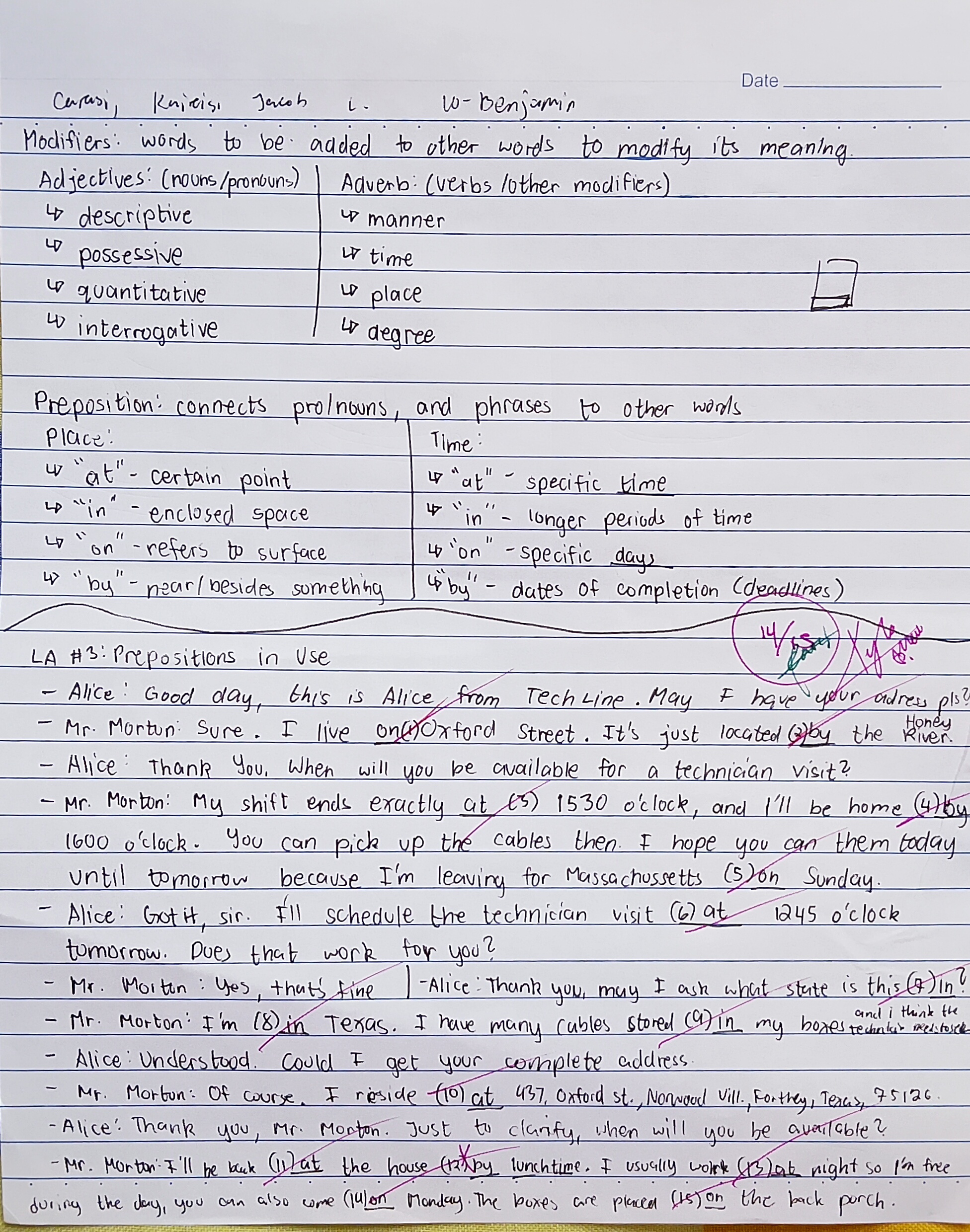
That's All for this Quarter!
Group Works
Group Work 1: Guess the Barrier - 19/20
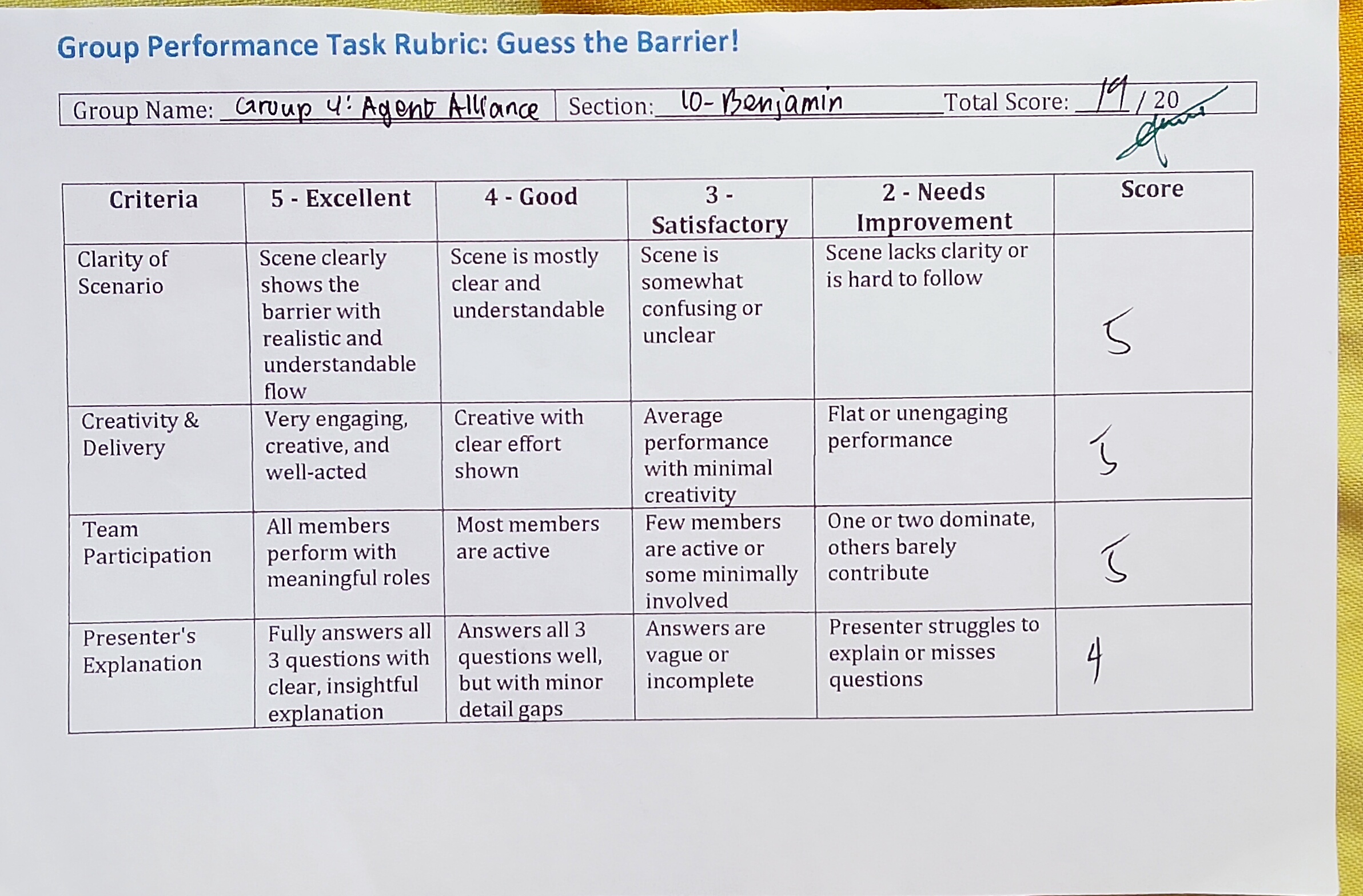
Group Work 2: Tenses and Aspects - ?/15
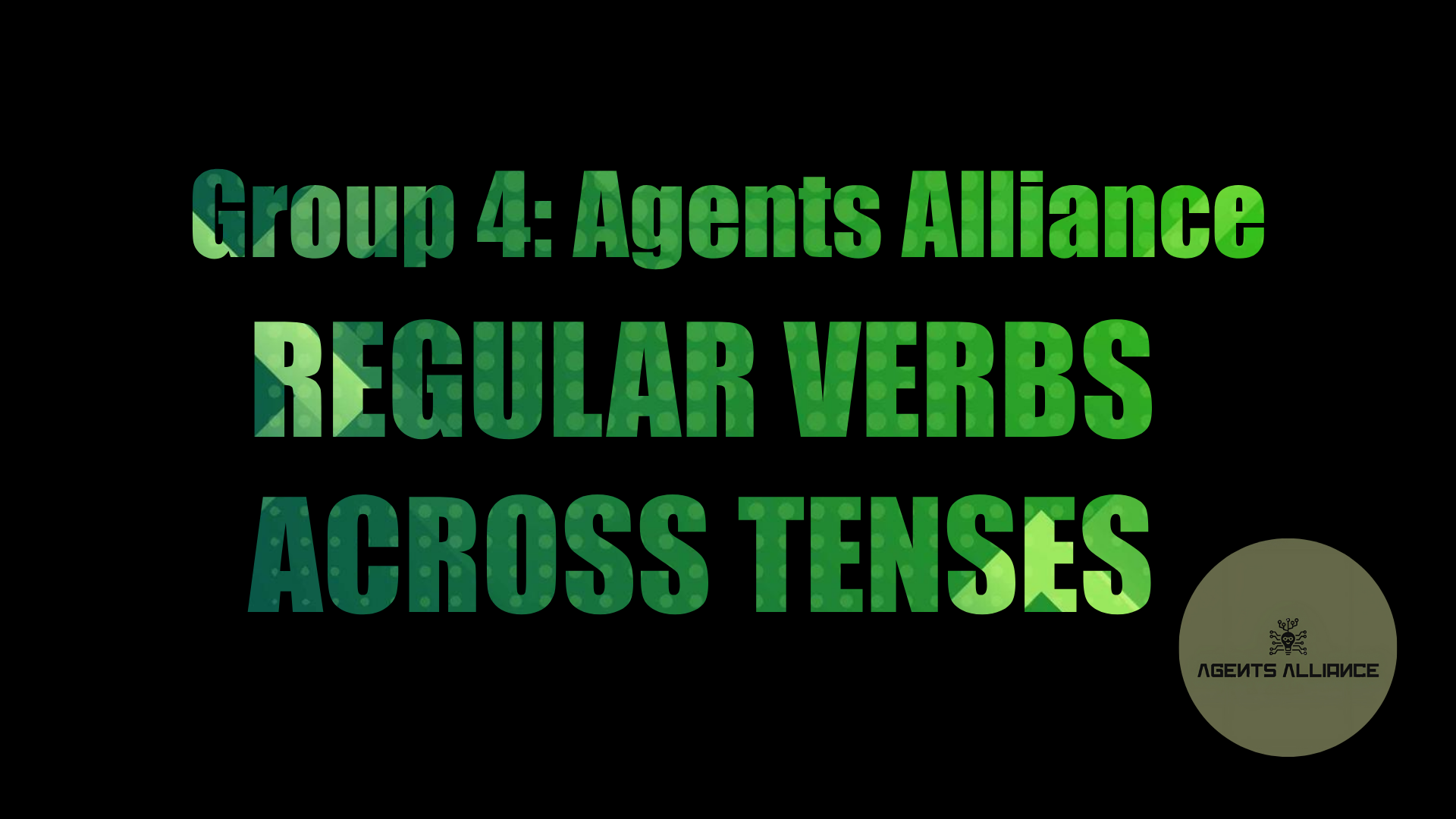
Group Work 3: Biography Speech 16/16

That's All for this Quarter!
Asynchronous Tasks
Asynchronous Task 1: Reading Phonemes
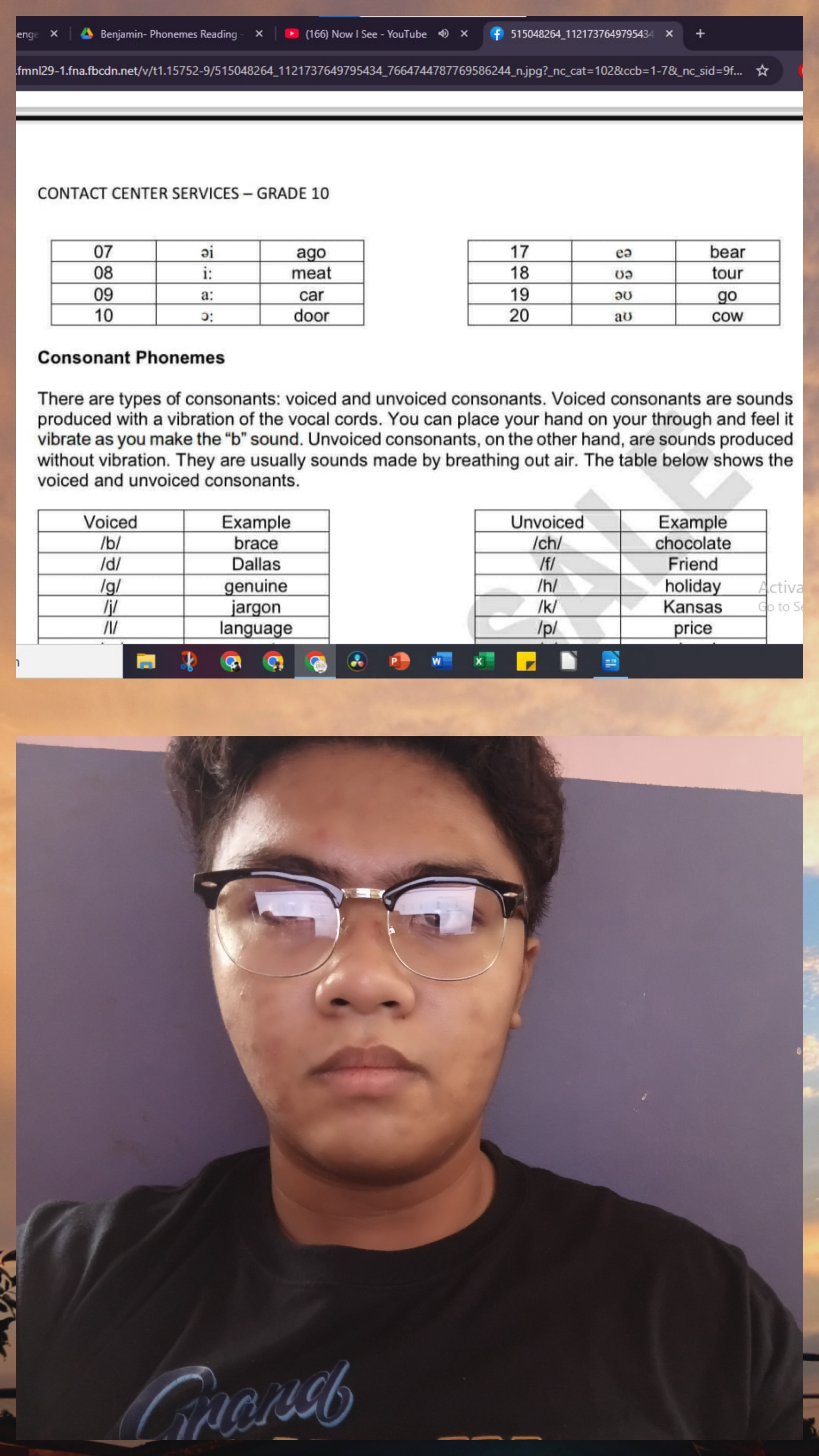
Asynchronous Task 2: Pagpag Video - ?
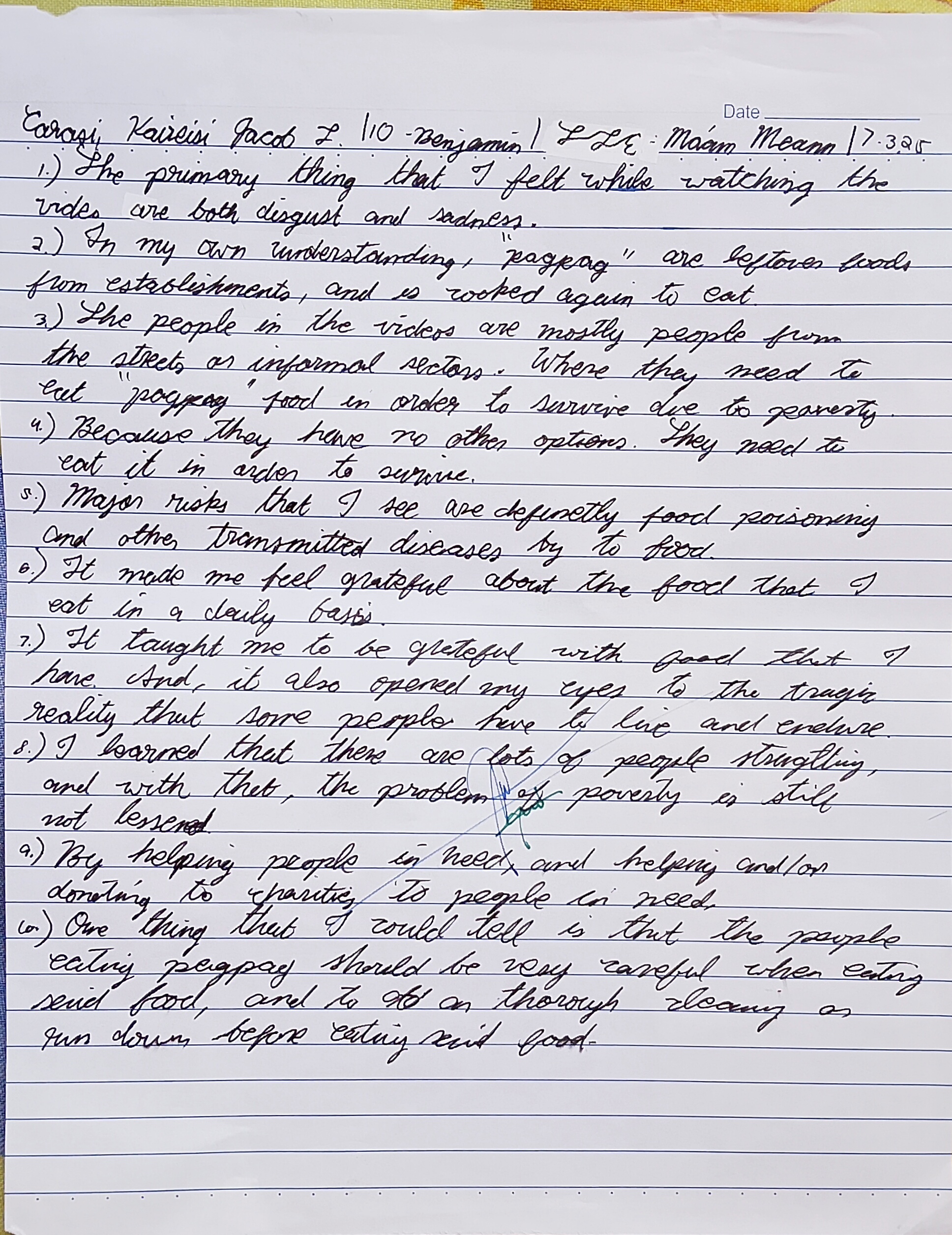
That's All for this Quarter!
Quizzes
Quiz #1 - 23/25

Quiz #2 (SVA) - 10/15
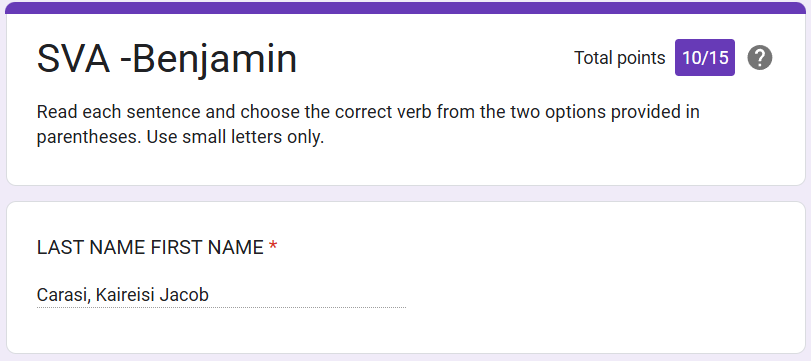
Quiz #3 - 16/20

Periodical Test - 46/60
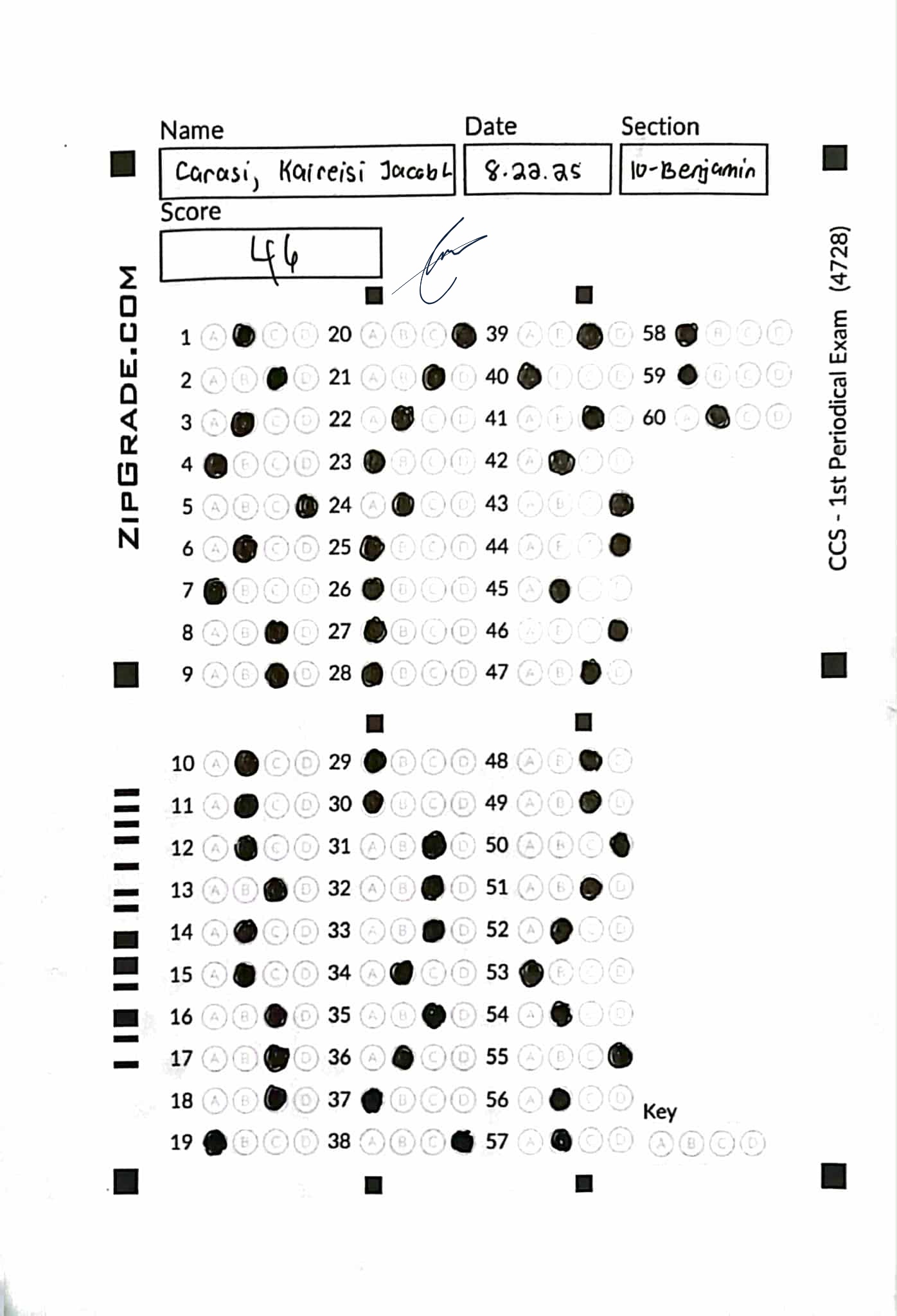
Reflections
Lesson 1: Communication Pathways
What challenges did you encounter while identifying the appropriate communication pathway, and how did you overcome them? How can you apply the insights you gained from this activity to improve your communication in school or at home?
Lesson 2: Elements of Communication
Which element of communication do you think plays the most important role in ensuring that a message is clearly understood, and why?
Lesson 3: Barriers of Communication
Which communication barrier did you find the most relatable or challenging, and how can you possibly overcome it in real-life situations?
Lesson 4: Phonemes
How did learning about phonemes change the way you understand the sounds of language, and how can this help you improve your speaking or reading skills?
Lesson 5: Subject-Verb Agreement
How can applying subject-verb agreement rules in your daily writing and speaking improve the way others understand your message?
Lesson 6: Tenses and Aspects
What part of the presentation made you feel most confident, and why?
Lesson 7: Modifiers
What difficulties do you usually encounter when using modifiers, and how can you apply what you learned today to avoid them?
Lesson 8: Conditionals
What challenges did you experience while writing the interview script in conditionals, and how did this activity improve your skils in constructing a sentence?
Lesson 9: Listening Skills
How did practicing active listening during the biography speech help your ability to focus and understand the important details?
Final Reflection:
Looking back in our TLE CCS Class, what skills and lessons do you find the most valuable, and what are you looking forward to learning and improving in the next quarter?

Quarter 2
Summary of the Second Quarter:
Performance Tasks
Performance Task 1: Voice Rate - 15/15
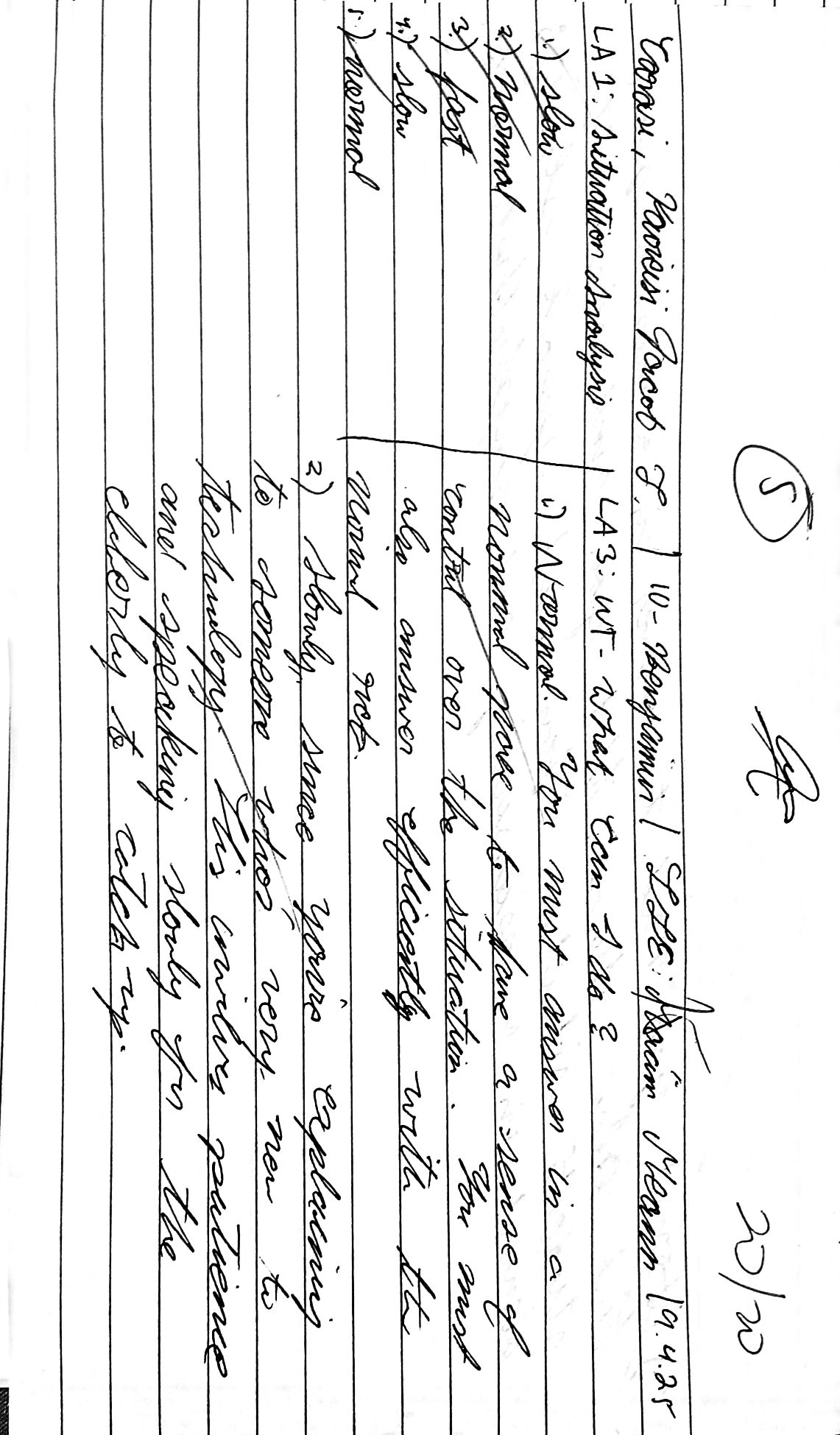

Performance Task 2: Pitch and Tone - 12/15 (w/o +5)
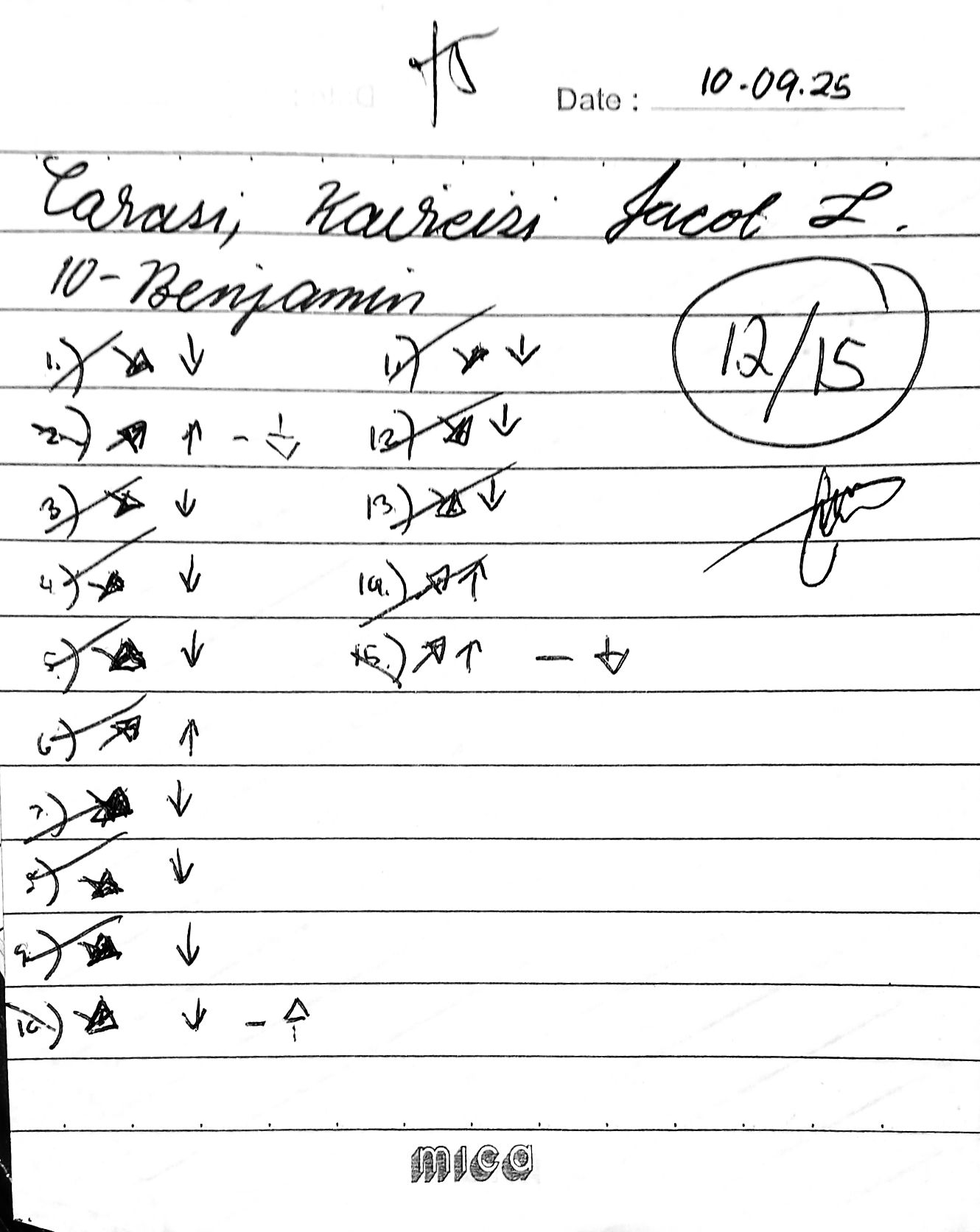
Performance Task 3: Linking and Blending - 20/20
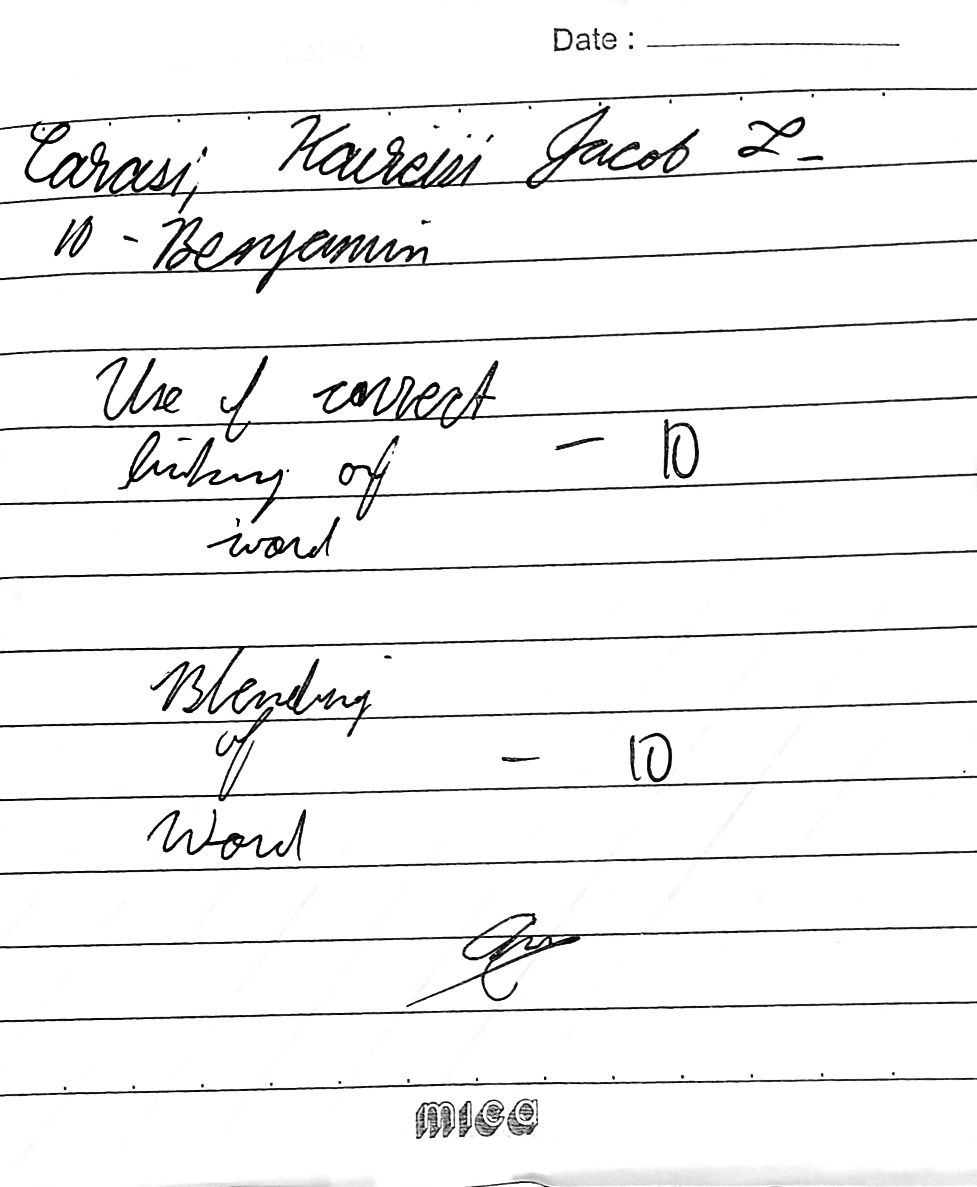
Performance Task 4: Mr. Johnson - 19/20
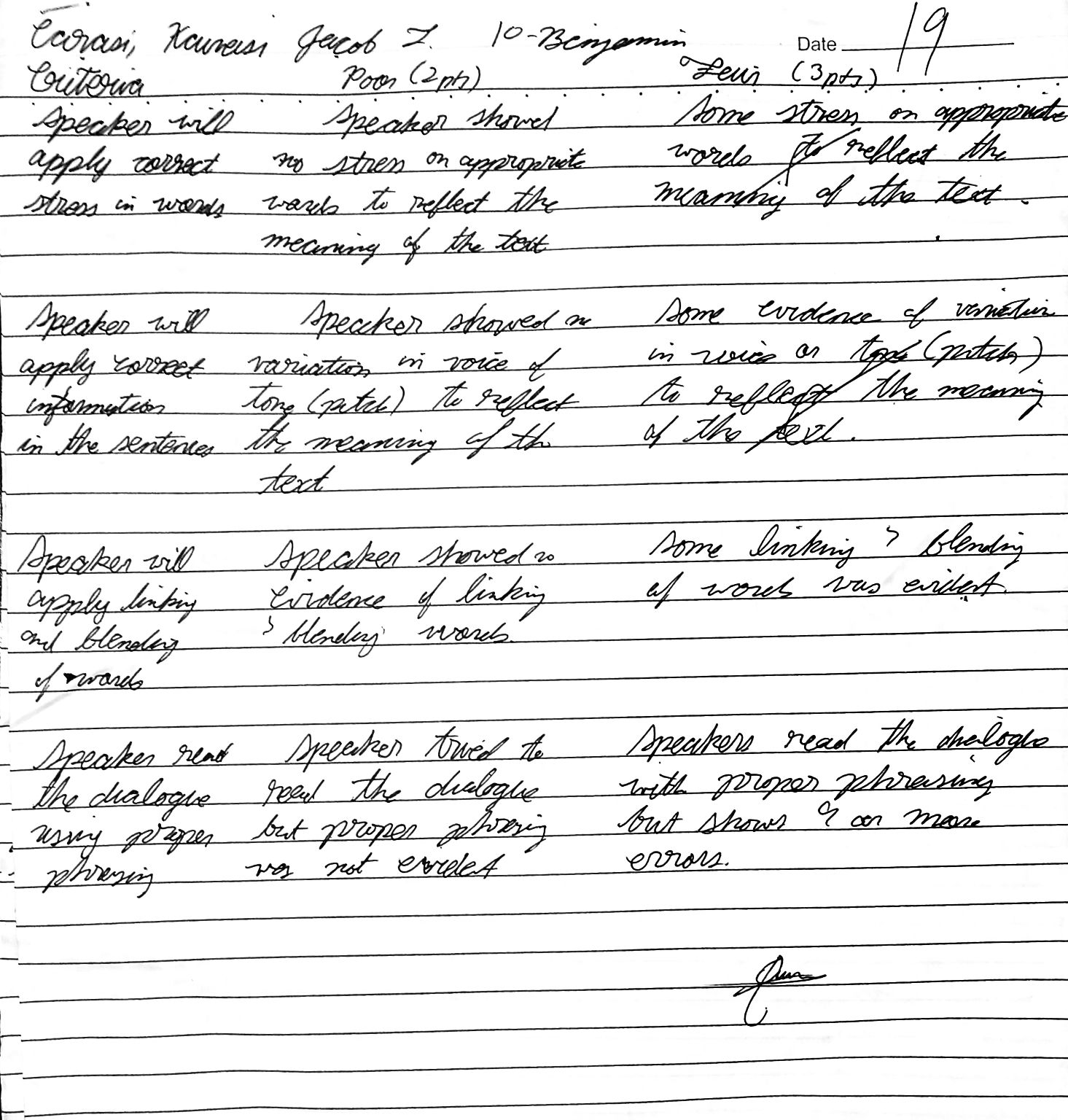
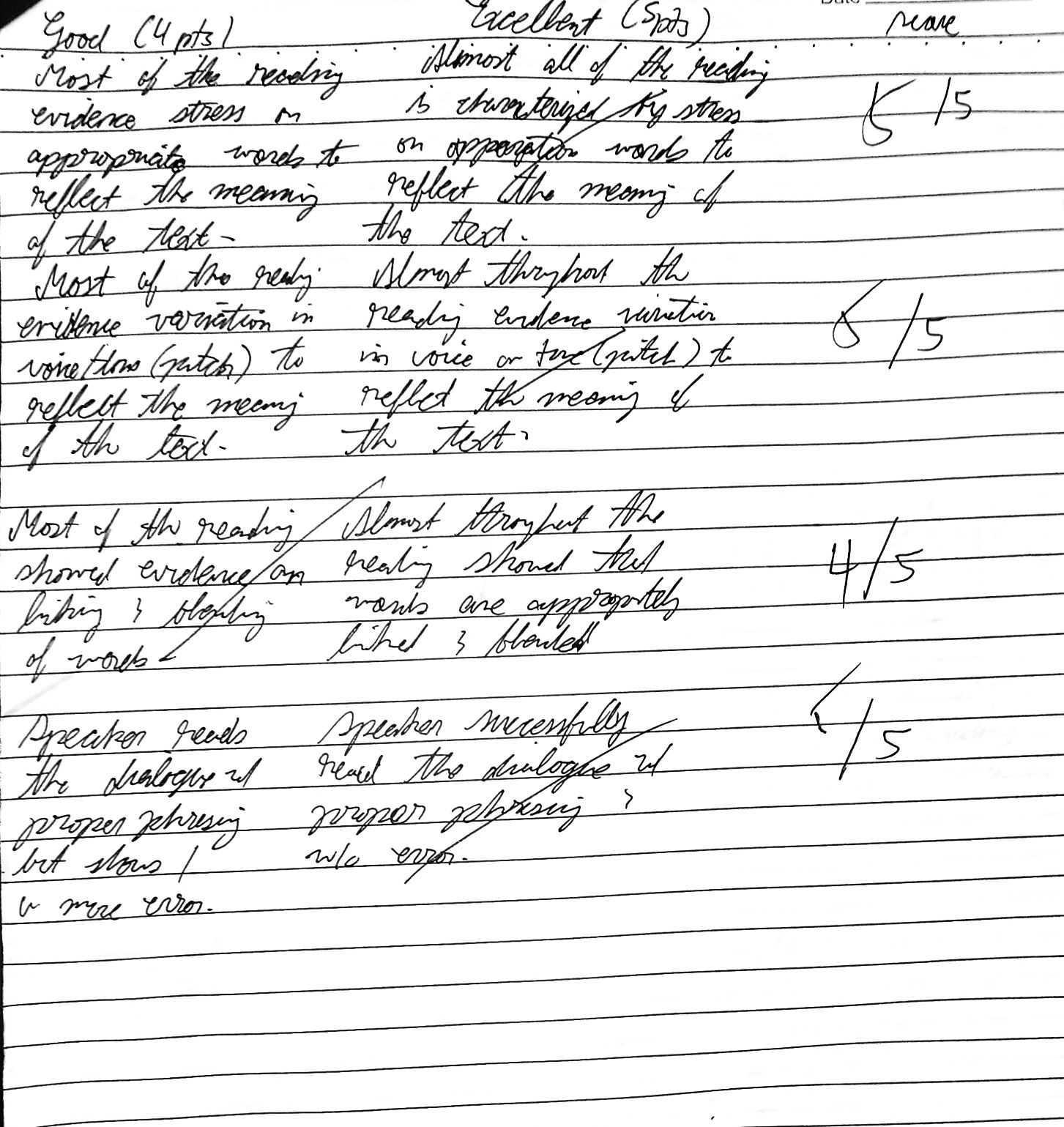
Written Tasks
Written Task 1: Voice Rate - 5/5

Written Task 2: Conversational Cues - 15/15
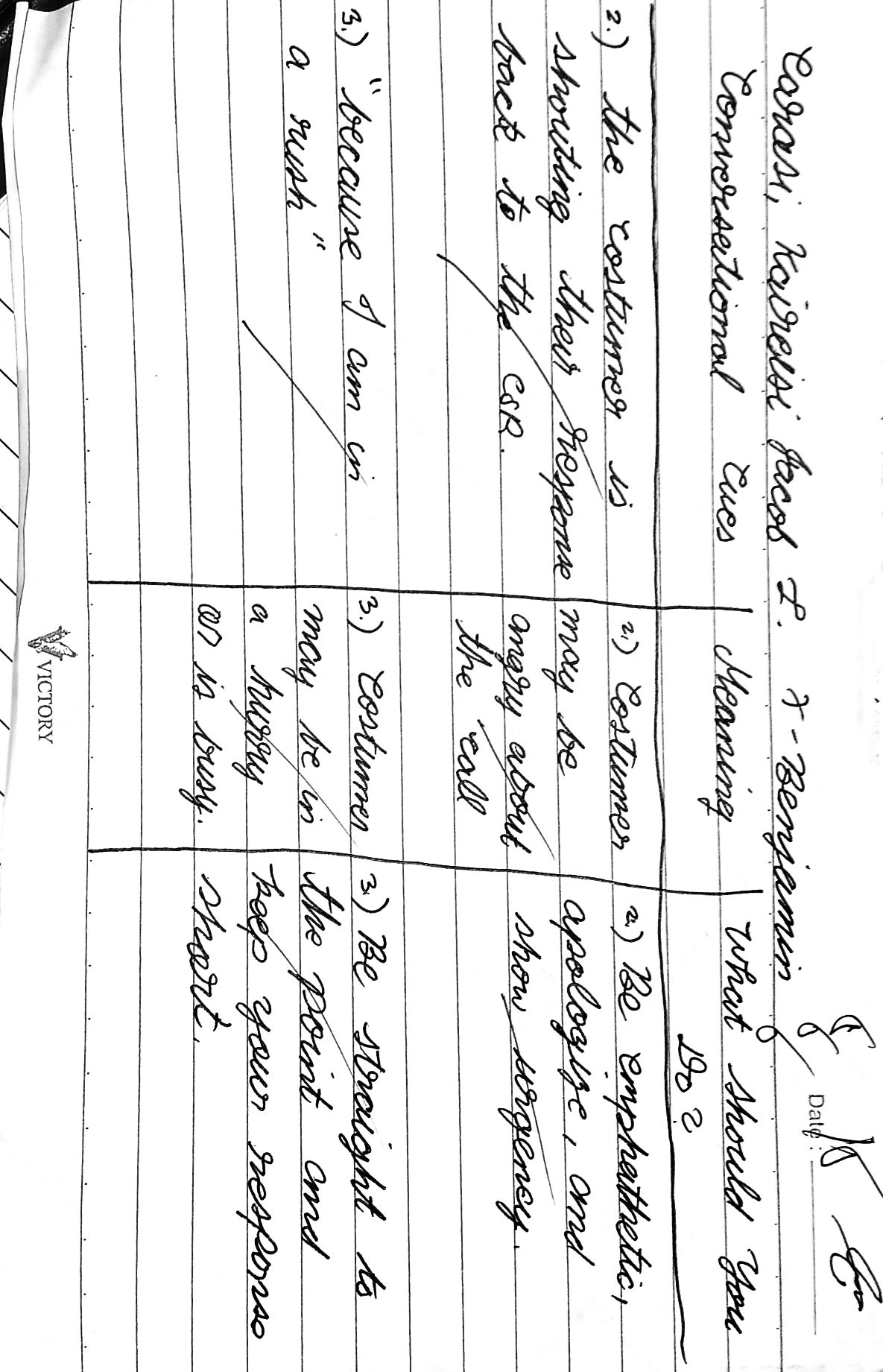
Written Task 3: Hacker VIdeo Reflection - 15/15
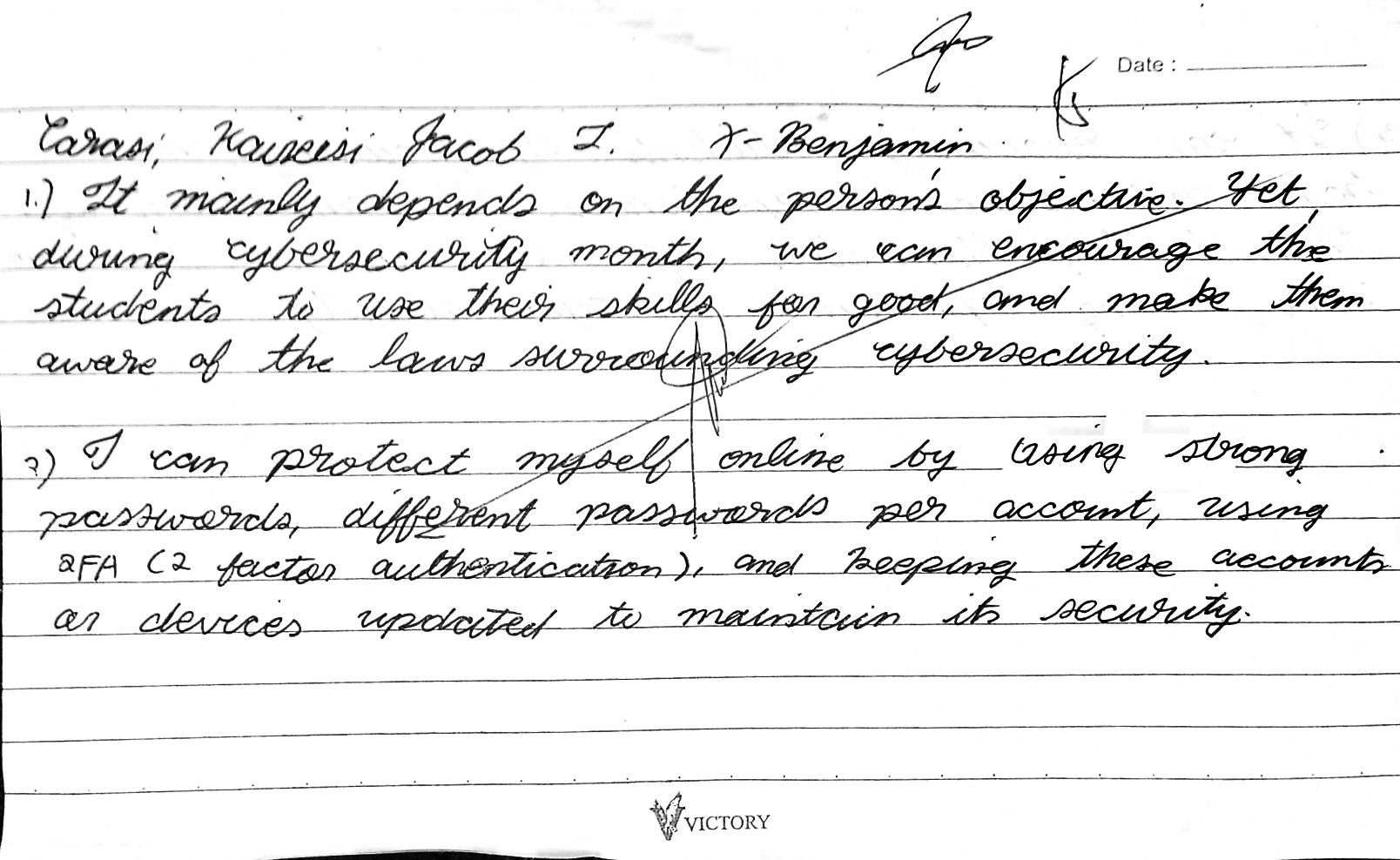
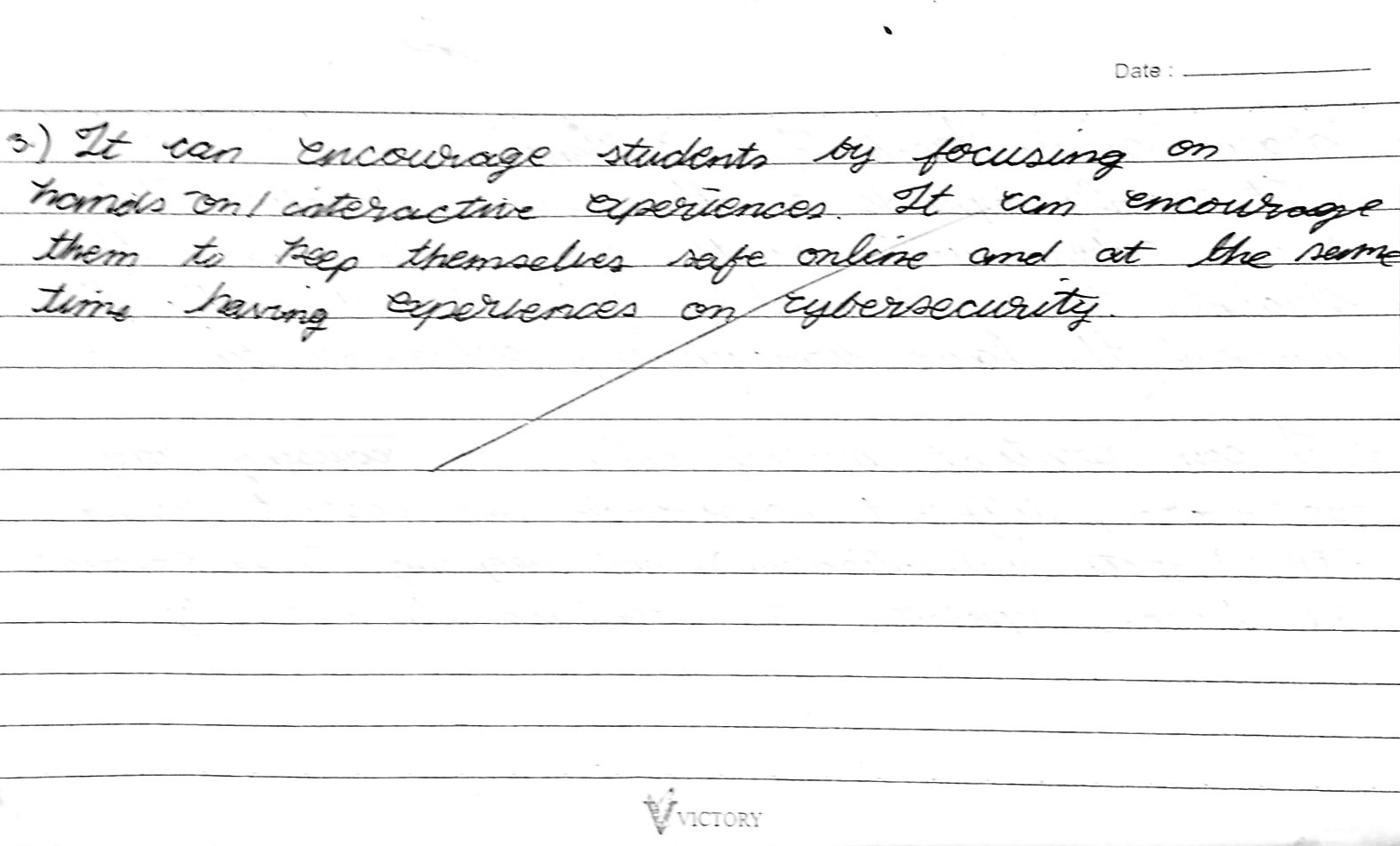
Group Works
Group Work 1: Voice Wolume - 15/15
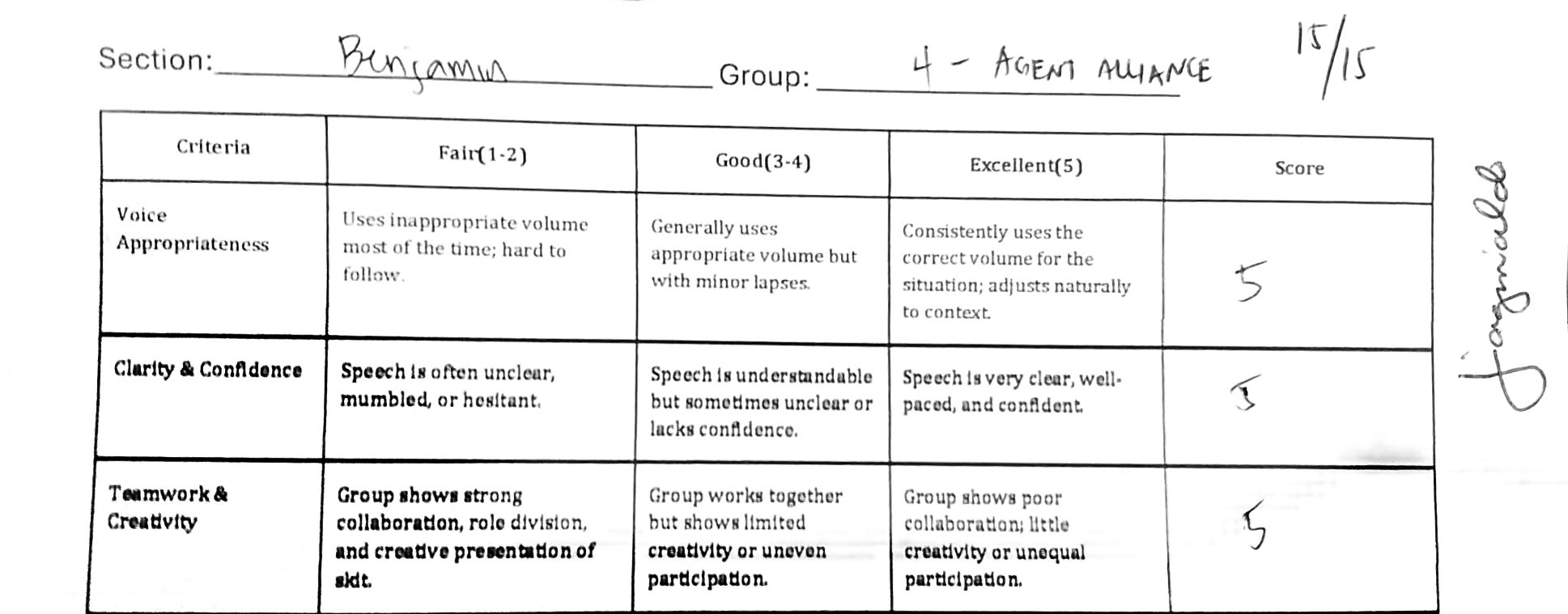

Group Work 2: Three Little Pigs - 18/20


Group Work 3: Group Dialogue - 14/15
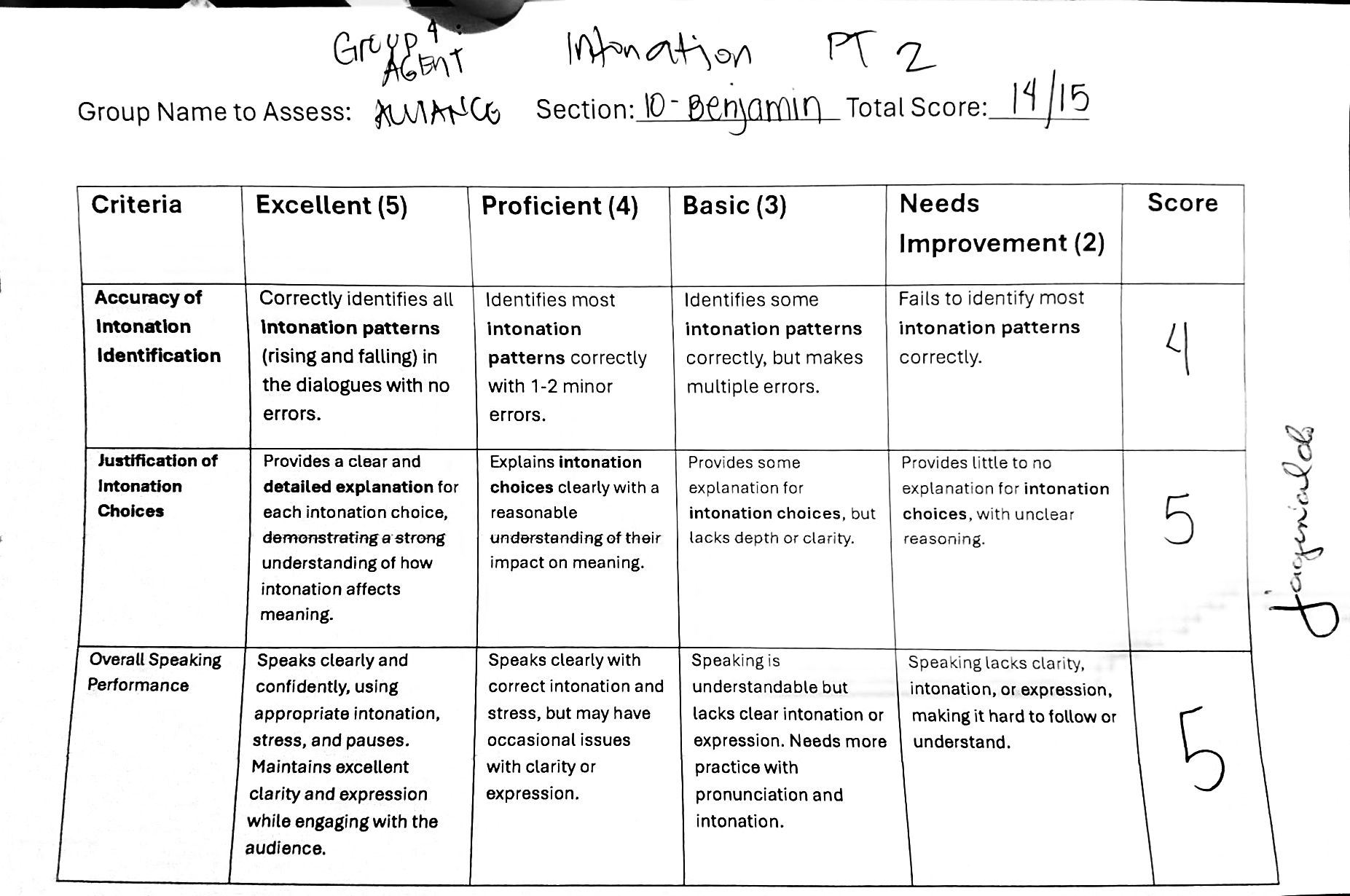
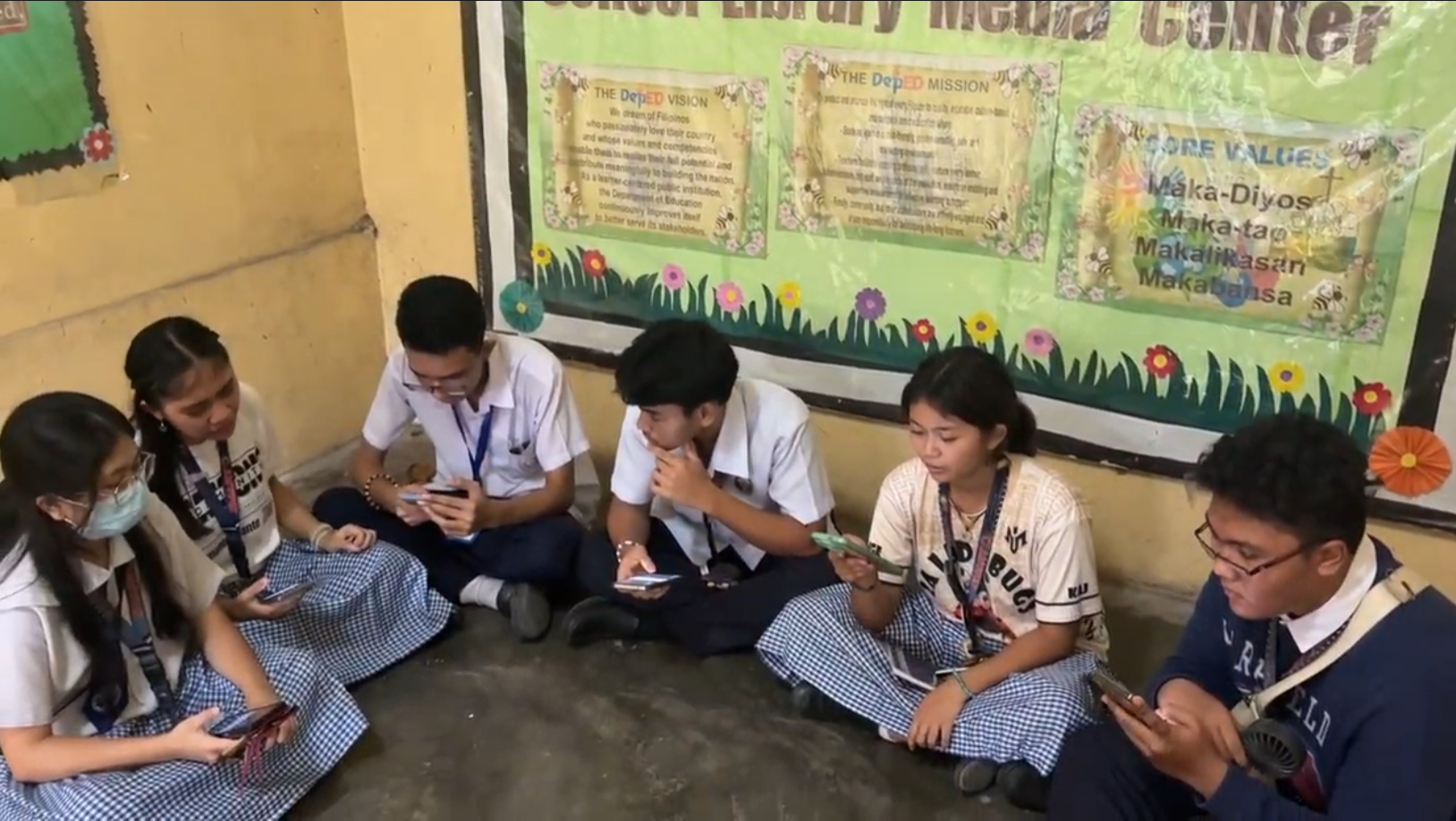
Group Work 4: Stress - Exempted
Group Work 5: Intonation - 14/15
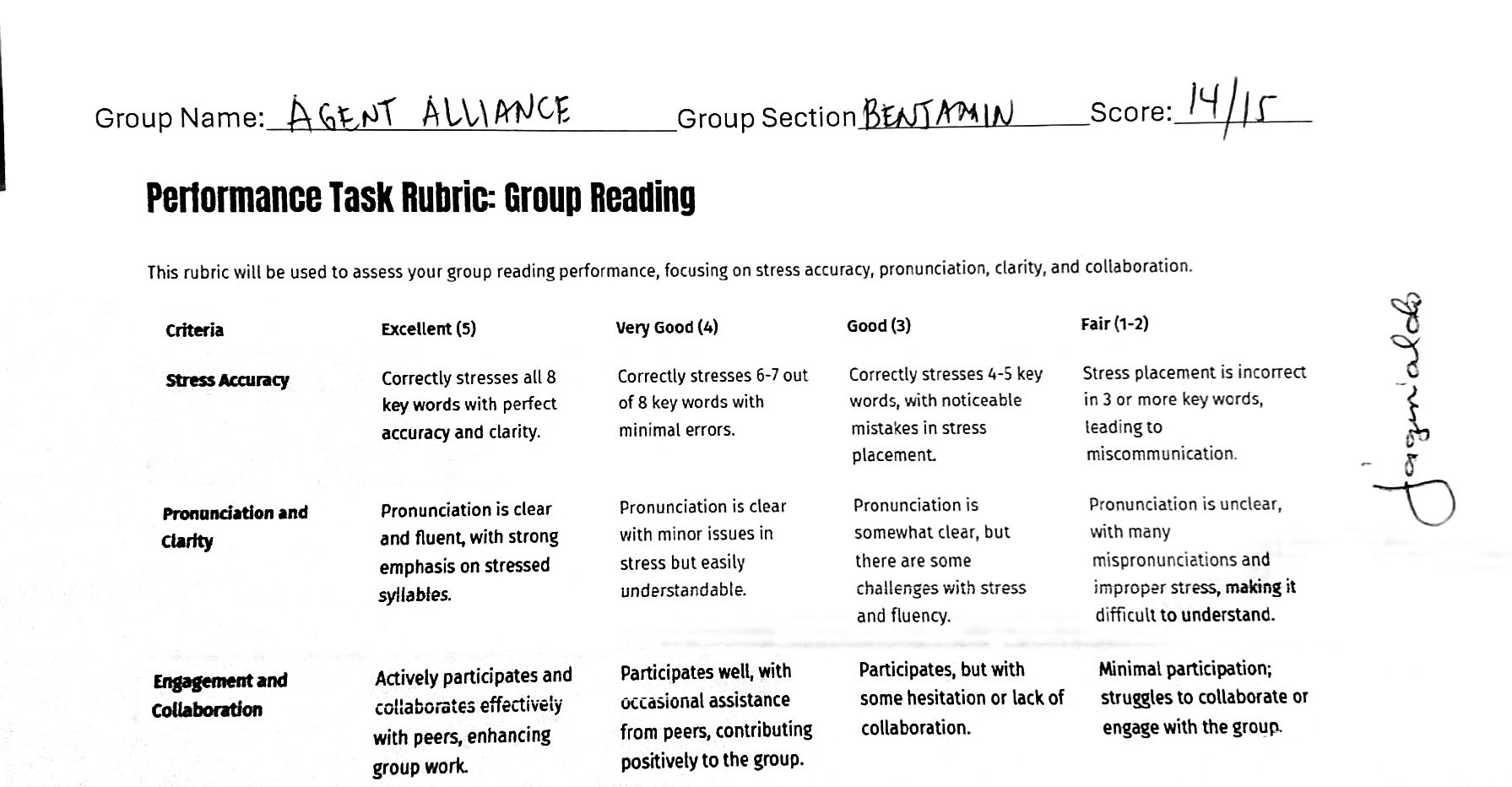
Asynchronous Tasks
None!
Quizzes
Quiz 2.1 - 21/25
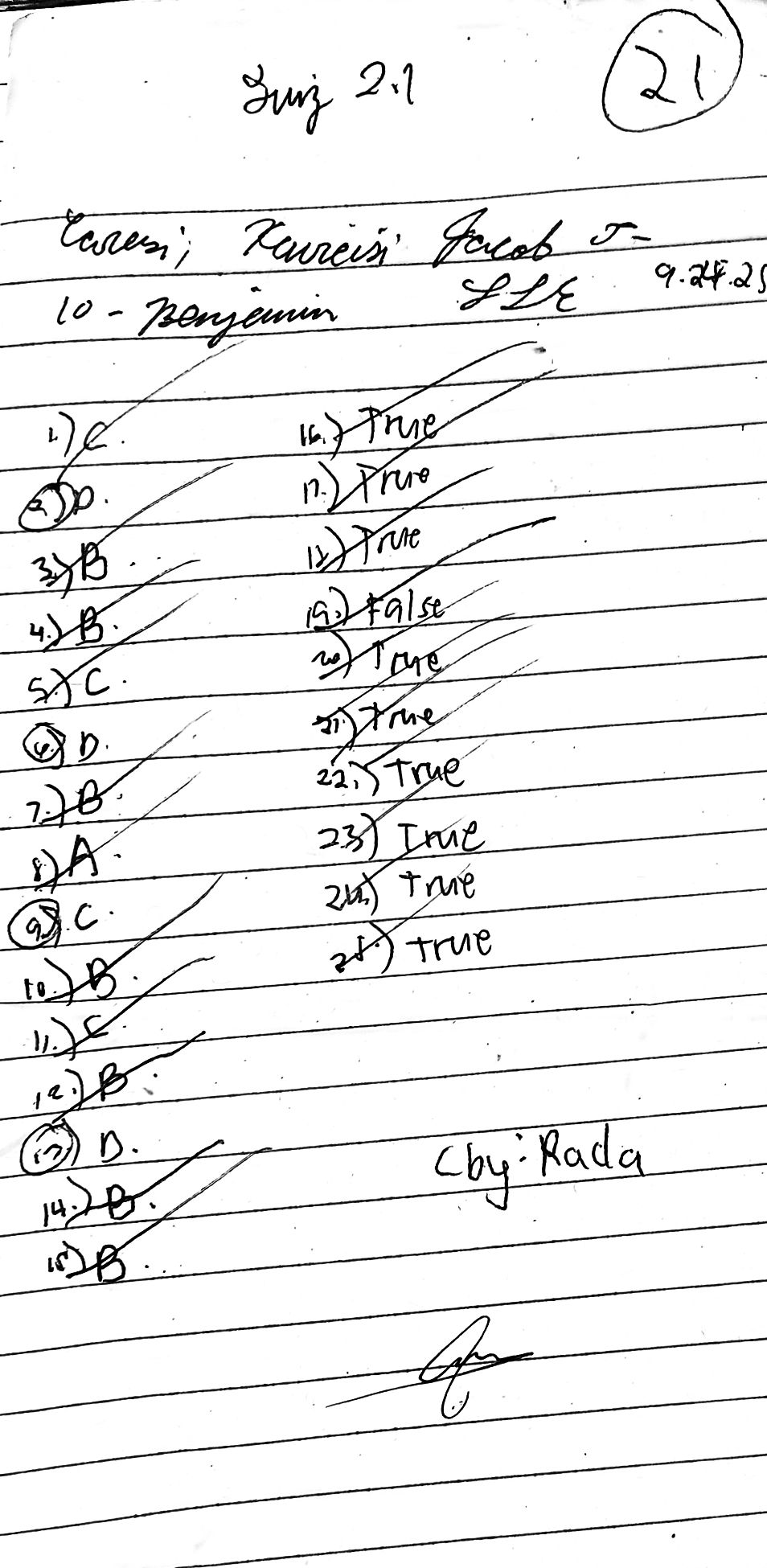
Periodical Test - 47/60
Reflections
Lesson 1: Voice Rate
How does speaking too fast or too slow affect how we understand each other in class disscussions? What sugggestions do you have for adjusting speaking speed to make sure everyone follows along?
Lesson 2: Voice Volume
How does the volume of your voice affect how yout classmates hear and engage with you during our lessons or during group works? How can we ensure everyone can hear without being too loud?
Lesson 3: Pitch and Tone
After role-playing the "Three Little Pigs", how did adjusting your rate, volume, pitch, and tone impact your character? What would you change to improve your delivery next time?
Lesson 4: Stress and Accent
After the group activity where each of you recited with the correct stress. How did focusing on owrk stress affect the clarity and meaning of the paragraph? What did you learn from listening to otehrs, and how can you apply this in your future reading/speaking?
Lesson 5: Intonation
After listening to another group's dialogue and noticing their intonation. How did it change how you understood their message? How can you sue what you've learn to improve your own conversations in
Lesson 6: Linking and Blending
After listening to you partner's recitatio. How did linking and blending words together make the paragraph sound more natural or clear? What tips would you suggest to your partner to improve linking and blending in speaking?
Lesson 7: Phrasing
After video recording your CSR dialogue and applying proper stress, intonation, blending, linking, and phrasing. How did these elements work toether to make your speech clearer and more effective? What would you focus on improving next time to sound more natural and engaging?
Lesson 8: Conversation Cues
How did these signals affect how well you commmunicated in real-life conversations? How can you use these cues to improve your interactions, with friends, family, or in professional settings?
Final Reflection:
After the activities on the second quarter, what is one skill you'd like to improve or explore more in the 3rd quarter? What specific strategies would you like to try enhance your speaking and communication?
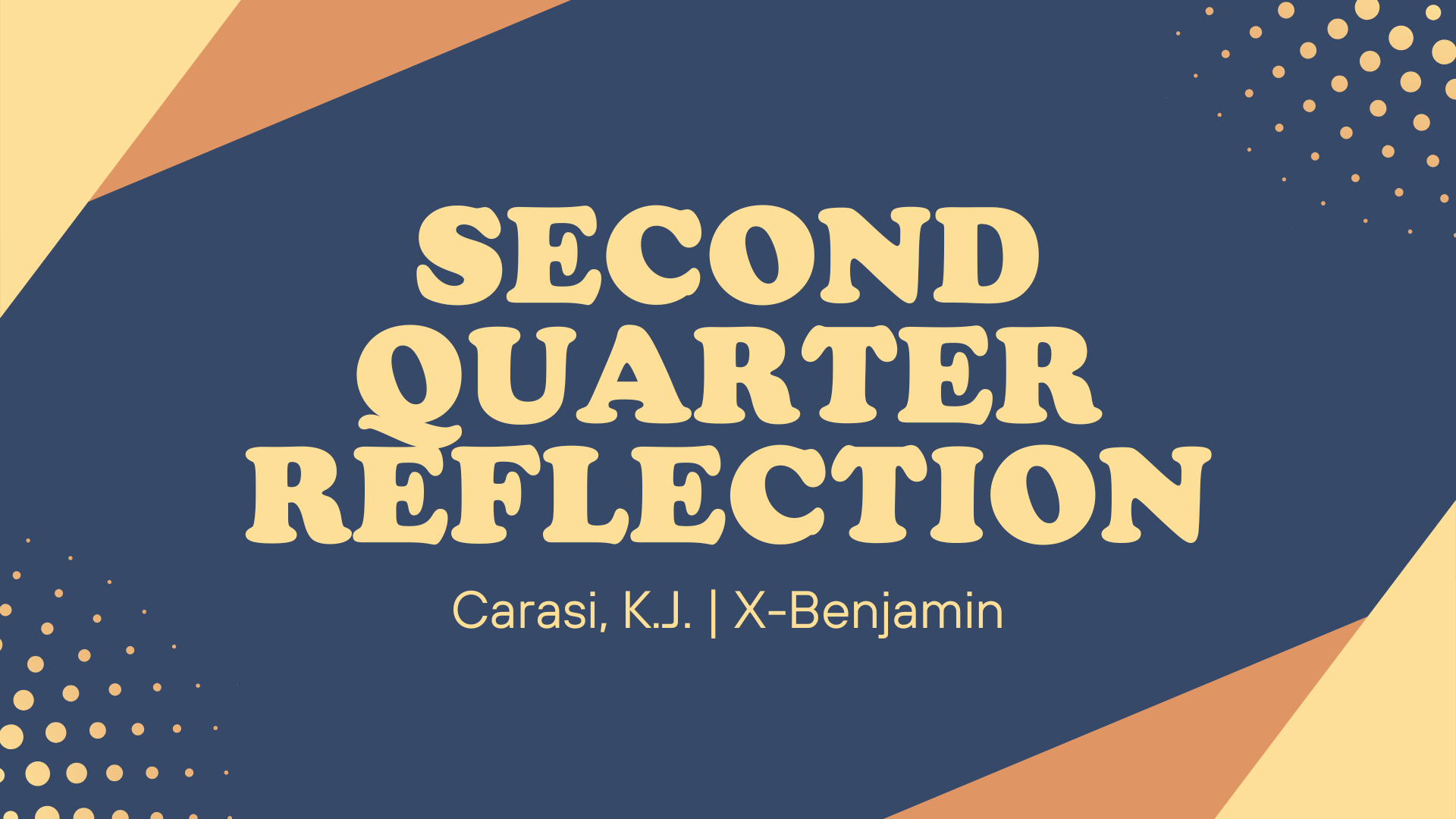
Quarter 3
Overview
Summary of the Third Quarter:
Performance Tasks
Coming Soon!
Written Tasks
Written Task 1 - N/A
Group Works
Group Work 1 - ?/?

Group Work 2 - ?/?


Asynchronous Tasks
Coming Soon!
Quizzes
Coming Soon!
Reflections
Lesson 1: Types of Outsourcing
As a student of Contact Centre Services tasked with creating an advertisment promoting outsourcing in the Philippines, how does understanding the different outrourcing types (BOP, KPO, ITO, and MO) and outsourcing locations (onshore, nearshore, offshore) influence the way you highlight the country's strengths, and how does this help you realise your potential role in shaping the image of the Philipine Outsourcing Industry?
Lesson 2: Business Process Outsourcing (BPO)
In the context of Contact Centre Services, how can learning about BPO operations, the interactions between clients, costumers, and agent, and the functions of the front office versus the back office in outsourcing help you develop the skills and mindset needed for a successful career in the industry?
Lesson 3: Types of Products and Services of BPO
How did the activity in "the Types of Products and Services of BPO" help you connect your traits and skills with a specific BPO sector, and how has it influenced your view of your future career in the industry?
Lessson 4: Call Centre Agent Performance Metrics
How does reviewing the call centre agent performance metric report of the assigned group help you assess their strengths and areas for improvement?
Lesson 5: Client and Costumer Needs/Products and Services in Contact Centre
How did creating the tip sheet on client and costumer needs help you better understand the key factors that contribute to costumer satisfaction? How can this exercise improve your ability to address client needs effectively in the future?
Quarter 4
Overview
Summary of the Fourth Quarter:
Performance Tasks
Coming Soon!
Written Tasks
Coming Soon!
Group Works
Coming Soon!
Asynchronous Tasks
Coming Soon!
Quizzes
Coming Soon!
Reflections
Coming Soon!